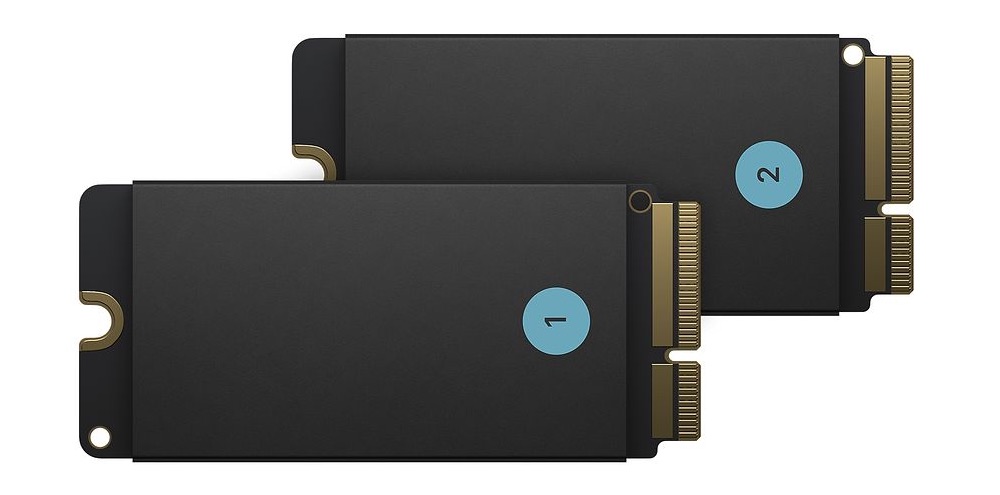
Following an announcement earlier today, Apple is now selling SSD storage upgrade kits for the latest Mac Pro, with 1TB, 2TB, 4TB, and 8TB options available. Prices range between $600 and $2,800 in the United States.

Each kit contains two SSD modules, enabling users to upgrade the internal storage capacity of a Mac Pro themselves. Until now, Apple advised customers who wanted to upgrade the built-in SSD modules to book an appointment with a Genius Bar or Apple Authorized Service Provider, as they are tied to Apple's T2 security chip.
As we demonstrated earlier this year, it is also possible to expand a Mac Pro's storage capacity by placing a third-party SSD in a PCIe slot. Another option is to install a third-party internal drive mount that connects via SATA.
Apple sells a variety of other components and accessories for the Mac Pro and its companion Pro Display XDR, including graphics modules, RAM kits, expensive wheels, a VESA mount adapter, an AUX power cable kit, and more.
Article Link: Apple's User-Installable Mac Pro SSD Kits Now Available With Up to 8TB of Storage for $2,800


